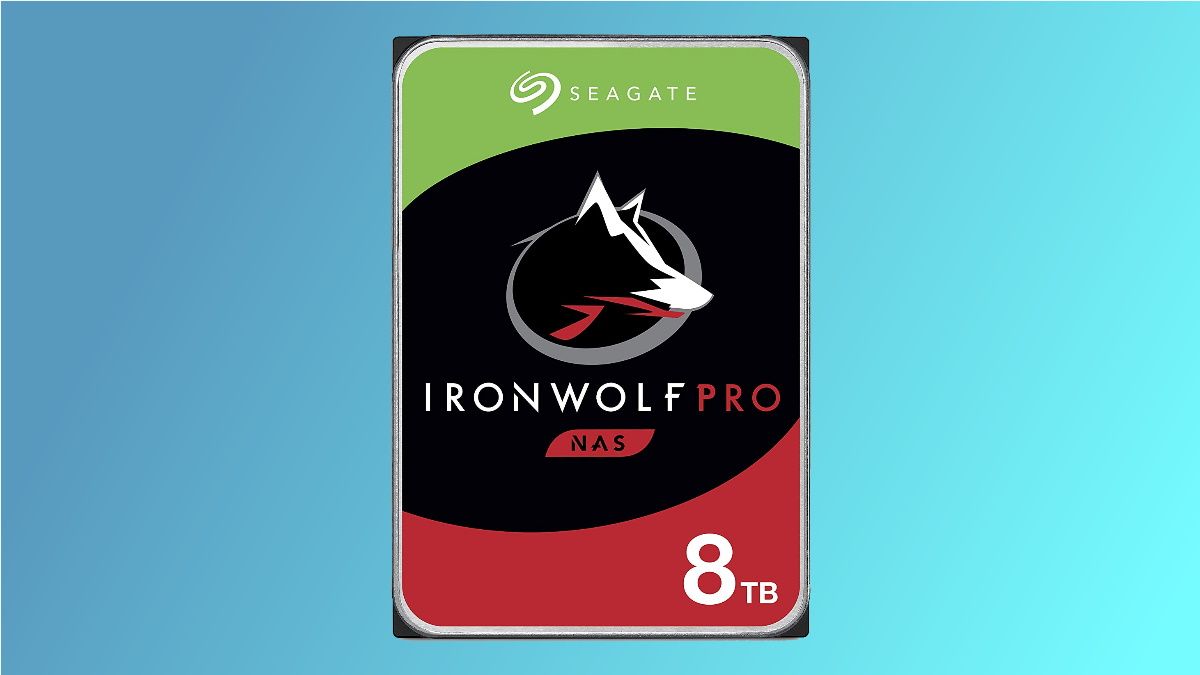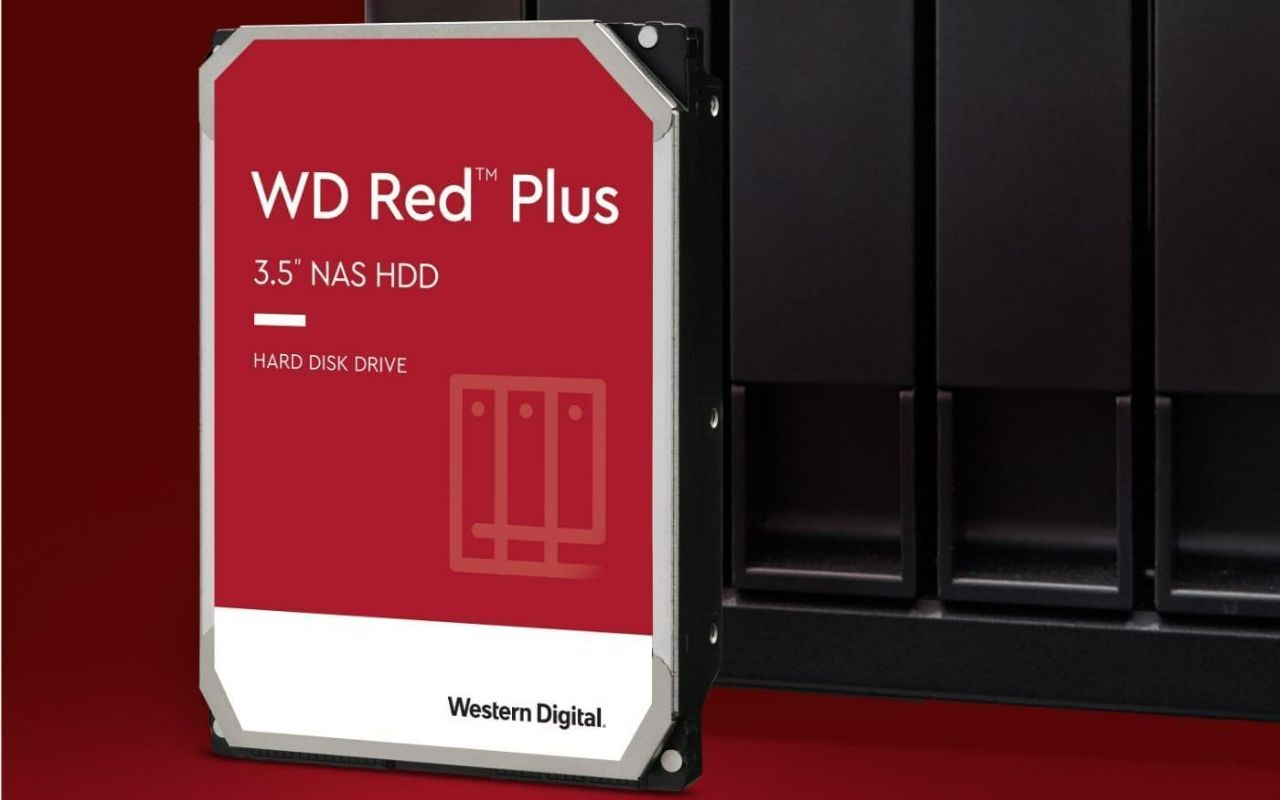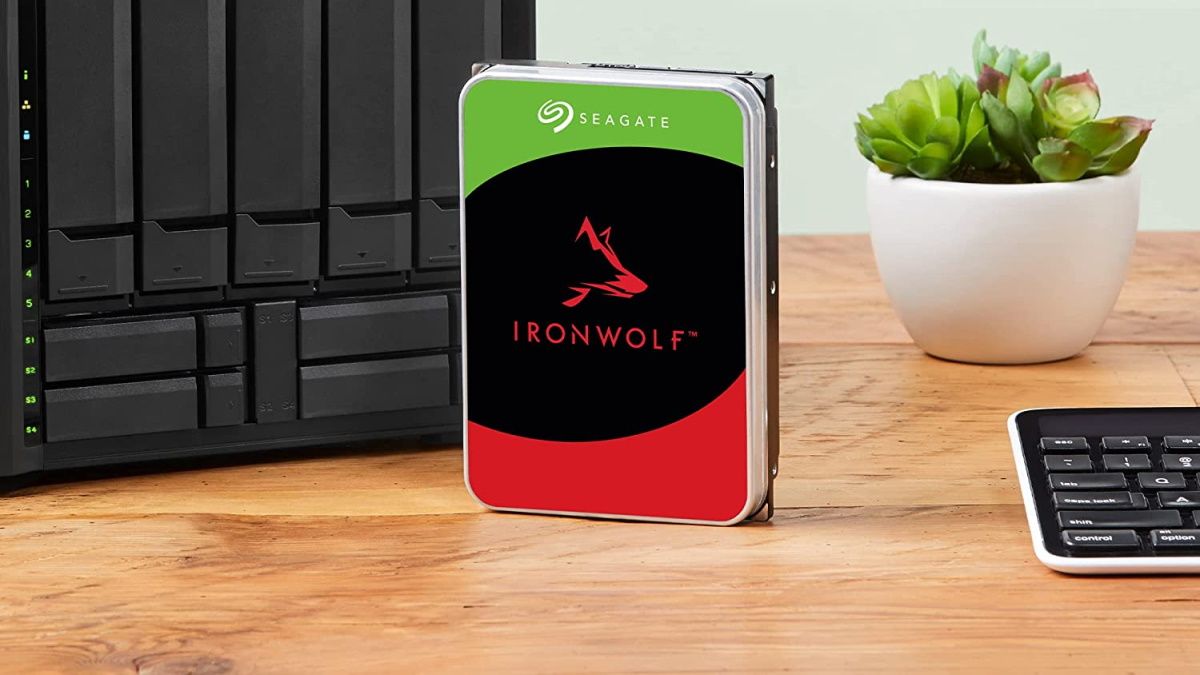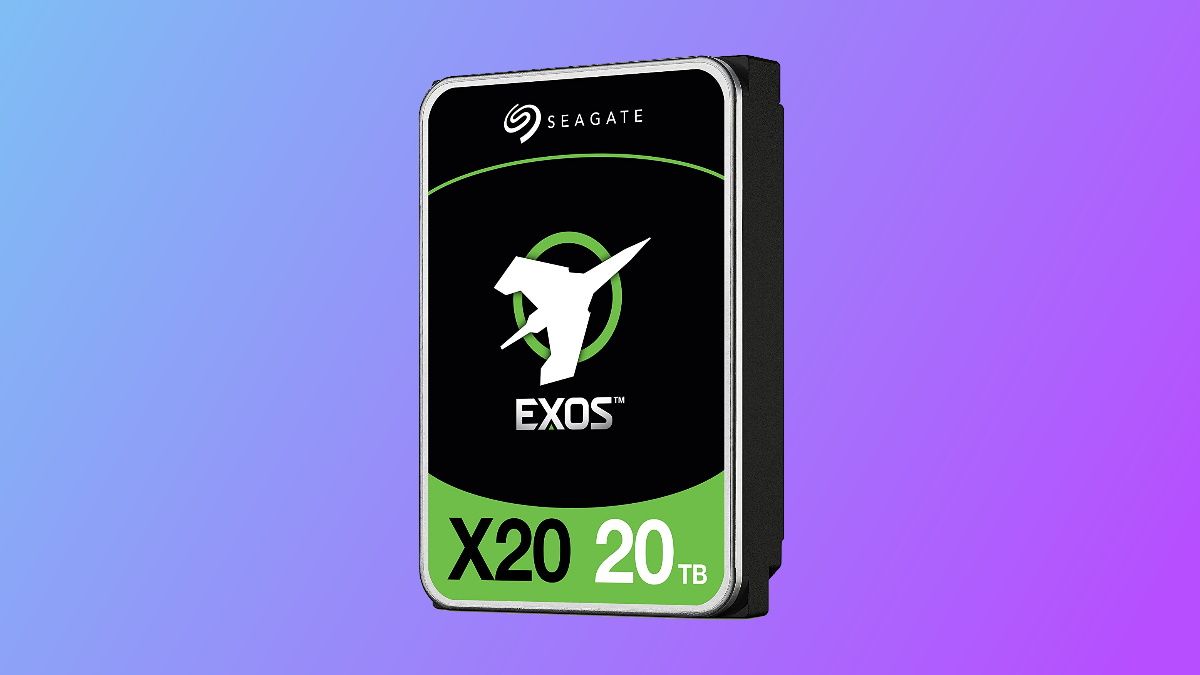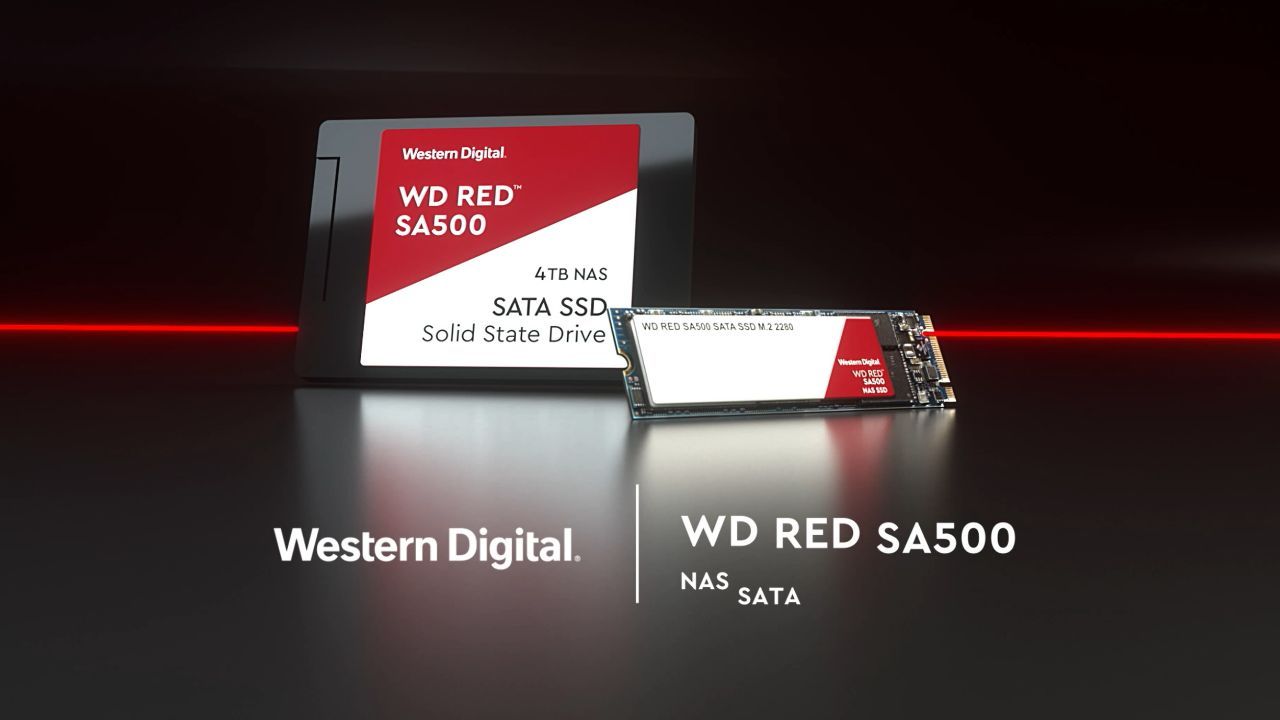Network-attached storage (NAS) is an excellent option for quickly accessing files across multiple devices. Whether you run a business or need versatility for your home office, here are the best NAS hard drives money can buy.
UPDATE: 10/17/2023
We’ve reviewed our recommendations and have updated our picks for the best budget and the best overall NAS hard drives you can buy.
What to Look For in a NAS Hard Drive in 2023
While hard drives and solid-state drives continue to dominate the market, network-attached storage (NAS) is quickly becoming a popular solution for small businesses and folks seeking a connected home office.
Instead of having files and data stored locally on your computer, they’re stored in a hard drive connected to a network—which is made accessible to any permitted user within that network. It’s an elegant solution for folks who need access to files on multiple devices or if several people in the same building want to store data in a centralized location.
After selecting a NAS station that will house all your NAS hard drives, you’ll be faced with your next big decision—which hard drives are right for you?
The first thing you’ll need to determine is how much capacity you need. This refers to the amount of storage available on the hard drive. Most homes should be perfectly served by 1TB or 2TB hard drives, but if you’re a power user, you might want to invest in something larger.
If you’re regularly working with sizable projects or in a creative capacity requiring hefty image and video files, consider springing for a larger hard drive.
Capacity isn’t the only thing to worry about. You’ll also need to consider something known as workload rate. This is the amount of data you can transfer to and from the hard drive without impacting its reliability. In other words, some hard drives are designed to withstand a lot of data transfer, while others aren’t quite up to the task.
The exact definition of workload rate tends to vary by manufacturer. But if you and your fellow network users are constantly uploading and downloading data from your NAS, then the workload rate is something to keep a close eye on.
When it comes to the best NAS hard drives, it’s hard to beat Western Digital and Seagate. The two companies are undoubtedly the best in the business, and we recommend sticking with their catalogs.
|
How Did We Research |
||
|
Models Evaluated |
Hours Researched |
Reviews Analyzed |
|
11 |
5 |
16 |
How-To Geek’s product recommendations come from the same team of experts that have helped people fix their gadgets over one billion times. We only recommend the best products based on our research and expertise. We never accept payment to endorse or review a product. Read More »
|
Pros |
Cons |
|---|---|
|
Reasonable price |
300TB/year workload rate |
|
Compatible with most NAS systems |
|
|
IronWolf Health Management System helps performance and longevity |
The Seagate IronWolf Pro stands out from the pack of similar NAS storage solutions thanks to its reasonable price, reliable management system to monitor the health of your drive, and impressive read/write speeds.
Although the IronWolf Pro drive provides speeds up to 214MB/s, the drive remains surprisingly quiet while in use. It’s also designed specifically for intense users who need their files accessible 365 days a year at all hours. It also includes three years of Rescue Data Recovery Services if anything happens to go awry.
The biggest downside to the IronWolf Pro is its 300TB/year workload rate. It’s not necessarily bad (300TB/year is a middle-of-the-pack stat), but if you’re a power user who transfers buckets of data annually, you might come up against those limitations. It’s a minor gripe on an otherwise stellar product, and most NAS systems will be served well by adding the IronWolf Pro to its bays.
Speaking of bays, the IronWolf Pro supports up to 24-bay NAS systems, making this a great option for enterprise-level systems and personal users who need incredible performance.
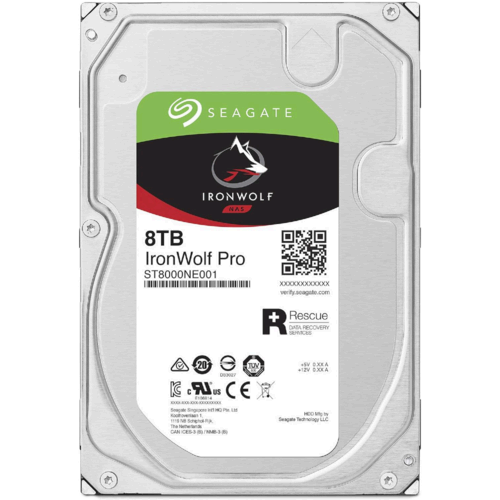

Seagate IronWolf Pro 8TB NAS
Best NAS Hard Drive Overall
$199 $235 Save $36
A great combination of pricing and performance, the Seagate IronWolf Pro is a great option for most users—unless you require a lofty workload rate.
|
Pros |
Cons |
|---|---|
|
Affordable |
180TB/year workload rate |
|
Multiple available capacities |
Slower than other options on this list |
|
Works with up to eight-bay NAS systems |
If you’re looking for a great NAS hard drive that won’t break the bank (but won’t fail when you need it most), you’ll want to look closely at the Western Digital Red Plus NAS hard drive. You’ll find it offered in various capacities, but the 8TB model should be more than enough for personal use. Better yet, it comes in at around $160, which is an exceptional price.
Considering that low price point, you’re getting some great functionality. This includes support for up to eight bays, hardware designed to run 24/7, and a three-year limited warranty to put your mind at ease. You can also find a 14TB version if you need heaps of storage.
Unfortunately, that $160 price tag for the 8TB model has some limitations. For one, it only offers a 180TB/year workload rate. This should be enough for personal setups with only a few connected users. But if you’re purchasing a hard drive for your small businesses or need to move large piles of data, you should maybe look elsewhere.
Shortcomings aside, few NAS options in this price range match this hard drive’s performance. If you’re on a budget (or don’t necessarily want to spring for the “best of the best”), this is a perfectly serviceable option.
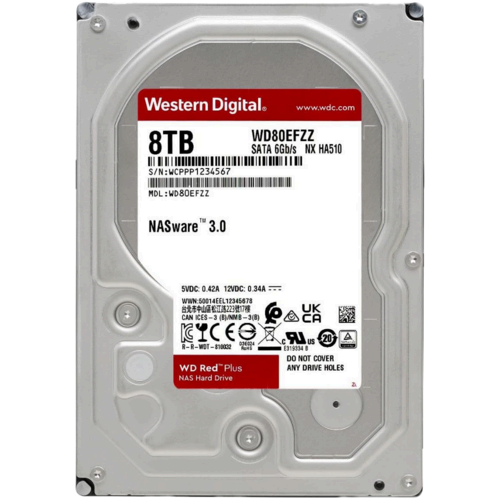

Western Digital Red Plus (8TB)
Best Budget
It’s a bit slower than the competition and only offers a 180TB/year workload rate, but the Red Plus is an excellent option for personal NAS setups.
|
Pros |
Cons |
|---|---|
|
Three-year warranty |
Compatible with up to eight-bay NAS systems |
|
IronWolf Health Management System helps with longevity and performance |
|
|
180MB/s transfer speeds |
If you’re looking for a high-capacity NAS hard drive, the Seagate IronWolf 18TB is an excellent choice. Not only is it reasonably priced for a drive this size, but it comes with many of the same features as the high-end IronWolf Pro series mentioned above.
Designed to withstand extended use without creating undue vibrations or rattling, the IronWolf is a great addition to any NAS system. It also comes with the usual IronWolf Health Management System, giving you an easy way to monitor the drive and ensure all your data is secure.
The 180MB/s transfer speeds aren’t the fastest in the business, but they’re impressive considering the overall price of the package. Seagate also touts a one million-hour mean time between failures (MTBF), meaning you can expect this high-capacity drive to last a very long time before running into any issues.
This IronWolf series is only compatible with up to eight bays, but few personal systems exceed that capacity.
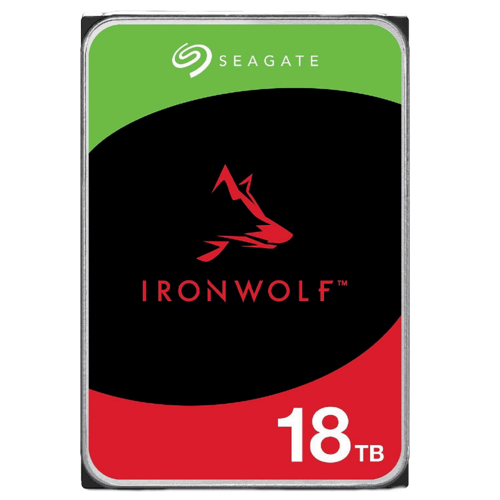

Seagate IronWolf 18TB NAS
Best High Capacity NAS Hard Drive for Home
Not only does it offer 18TB of storage, but it comes with a three-year warranty, the powerful IronWolf Health Management System, and a decent 180MB/s transfer speed.
|
Pros |
Cons |
|---|---|
|
20TB capacity |
Can become noisy |
|
550TB/year workload rate |
|
|
285MB/s transfer rate |
This is about as high-end as it gets. With a 2.5 million-hour MTBF rating, 20TB capacity, and 550TB/year workload rate, any business would be well-served with the Seagate Exos X20.
The 550TB/year workload rate is a standout, as it’s more than double the value of the IronWolf Pro—our choice for the best NAS hard drive overall. If you require the transfer of gigantic chunks of data, you will have zero problems with the Seagate Exos X20.
Then there’s the 285MB/s transfer rate, which makes moving all that data surprisingly speedy. It can get a bit noisy when running at full capacity. Still, as most businesses will tuck their NAS system in a dedicated room, the occasional whirring shouldn’t be an issue.
As long as the price doesn’t scare you off, the Exos X20 is a stellar option.
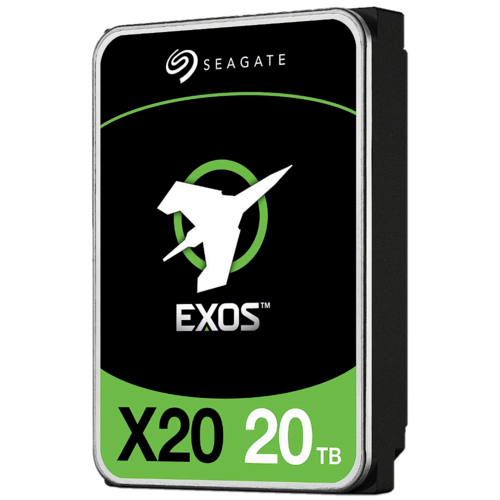

Seagate Exos X20 20TB Enterprise HDD
Best High-Capacity NAS Hard Drive for Business
With an incredible transfer rate and up to 550TB/year workload rate, few NAS hard drives put up a performance that can match the Exos X20.
|
Pros |
Cons |
|---|---|
|
Multiple capacities |
Capacity maxes out at 2TB |
|
Fast read and write speeds |
|
|
Designed for 24/7 use |
If you need fast transfer speeds, you’ll want to consider adding a solid state drive (SSD) to your NAS setup. The Western Digital Red SA500 is one of the best in the business, offering the usual Western Digital reliability and speeds that clock in at a blistering 560MB/s.
Specifically, you can expect a read performance of up to 560MB/s and a write performance of up to 530MB/s. Those speeds are leagues above anything offered by a standard NAS hard drive and are well-suited for handling large formats such as 4K or 8K video files.
Unfortunately, this specific model maxes out at a 2TB capacity. But if you’re looking for fast file transfers and a drive designed with longevity in mind (the Red SA500 comes with a five-year limited warranty), this is one of the best options available today.
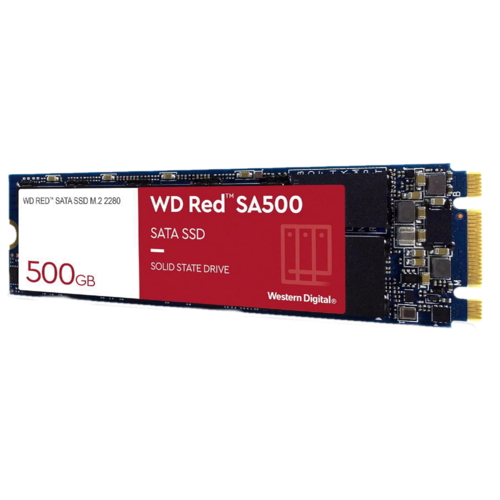

Western Digital Red SA500
Best NAS Solid State Drive
$59 $80 Save $21
With a read performance of up to 560MB/s, the Western Digital Red SA4500 is the drive to get if you regularly deal with massive files.
FAQ
What does NAS stand for?
NAS stands for network-attached storage. It allows multiple users to access the files through a LAN (local area network).
Should I use a NAS at home?
If you’d like multiple computers to have quick access to files and want to ability to quickly create backups, then opting for a NAS setup is a good idea.
What’s the difference between a NAS hard drive and a normal hard drive?
A NAS hard drive is typically online all the time, allowing several users to access them at any given time. A normal hard drive is only accessible while its device is turned on. Because of this, NAS drives are typically designed to support longer run times.
Can I use a NAS hard drive as a regular hard drive?
Yes, as long as all the other specifications fit your setup, a NAS hard drive can be used as a regular hard drive.
Should I use an SSD for NAS?
If you don’t mind the added cost, using an SSD for NAS will provide you with better read and write speeds than a hard drive.
